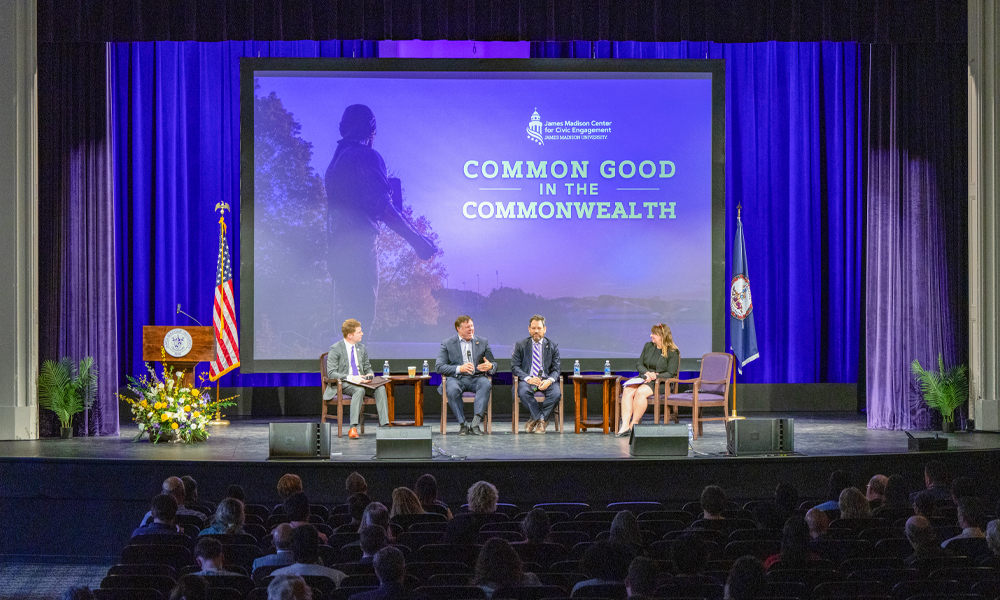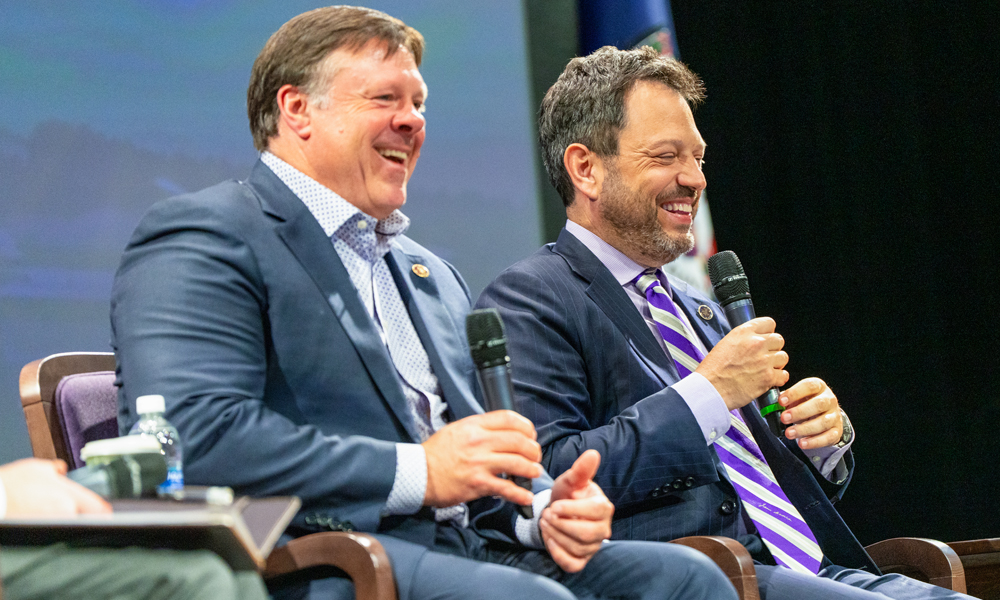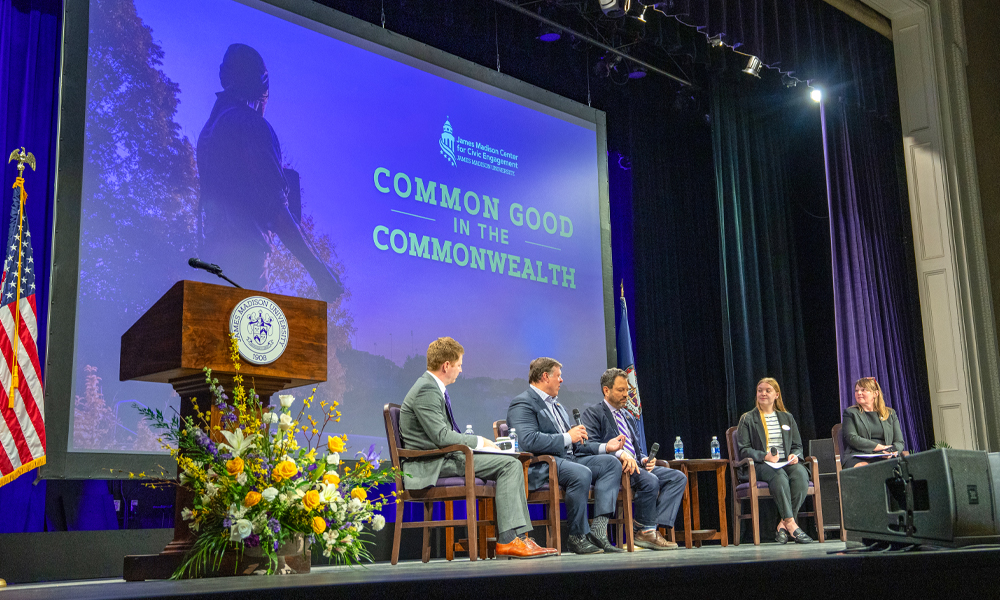Reaching across the aisle
In an era of division, senators model collaboration, civility
Alumni
SUMMARY: Virginia Senate Majority Leader Scott Surovell (’93) and Minority Leader Ryan McDougle (’93) sat down for a conversation in Wilson Hall about leading across party lines, tackling Virginia's pressing issues, and finding common ground in the latest edition of JMU's "Common Good in the Commonwealth" series.
Hear more episodes and subscribe to the podcast at the Being the Change podcast page.
At a time when unity feels out of reach in politics, two JMU alumni are showing that collaboration and civility are still possible.
On April 14, Virginia Senate Majority Leader Scott Surovell (‘93), a Democrat, and Minority Leader Ryan McDougle (’93), a Republican, returned to campus to participate in a bipartisan conversation series titled “Common Good in the Commonwealth.”
Held in Wilson Hall Auditorium, the free fireside chat welcomed faculty, students, staff and community members for a timely discussion about political leadership, respectful dialogue and collaboration across party lines to solve Virginia’s biggest challenges. The discussion was facilitated by Dr. Kara Dillard, executive director of the Madison Center for Civic Engagement, and Dr. David Kirkpatrick, chief of staff in the Office of the President.

Reflecting on what drew him to public service, Surovell said he sees his work in the state Senate “as a way to help [his] community solve problems.” He and McDougle emphasized that having professional relationships and finding common ground can inspire change.
|
“I try to encourage everybody [to] ... go talk to people, go make friends [and] get out there. Go volunteer in your community. Learn how other people think." — Scott Sorovell (’93) |
To illustrate this, they shared a real-world example of their recent effort to improve legislation in Richmond related to criminal convictions. Initially, the two senators — both attorneys — had differing perspectives on the bill’s scope and implications. But through ongoing dialogue and a willingness to listen, they found a compromise that addressed concerns from both sides and ultimately strengthened the policy.
“I think the legislature is better for having attorneys who actually practice law by going to a courtroom and having trials,” McDougle said. “[It] makes us able to articulate different positions; able to see the other person’s position, even if we don’t agree with it; make the arguments; and still, on the back end, come out and be able to have a positive interaction as people.”
|
“Having those conversations helps you start to understand where people are coming from." — Ryan McDougle (’93) |
McDougle stressed that having conversations with people who are different or have differing views is essential to understanding their perspective. “Having those conversations,” he said, “helps you start to understand where people are coming from.”
“You start to understand what’s important to people, what makes them tick,” Surovell added. “From an early age, I’ve learned that just being able to talk to people, listen to them and understand where they’re coming from is usually important in the business that we’re in.
“I think it’s also important for the future of our country,” Surovell said. “I try to encourage everybody [to] ... go talk to people, go make friends [and] get out there. Go volunteer in your community. Learn how other people think.”

Continuing the theme of civic participation, senior Erin Harris, a Madison Center democracy fellow, asked how young people can become more involved in the political process. In response, Surovell emphasized the foundational power of voting. “Power really comes from people voting,” he said.
Leadership is about relationships, the senators said, adding that meaningful change happens not through grand gestures, but through everyday conversations.
“It’s that interaction with each other — interaction with people who have a different view than you do — that will enable us to have better conversations and come up with better solutions,” McDougle said. “Our legal system is adversarial in nature, but through that adversarial piece, we come up with better solutions, and we try to find justice.”
